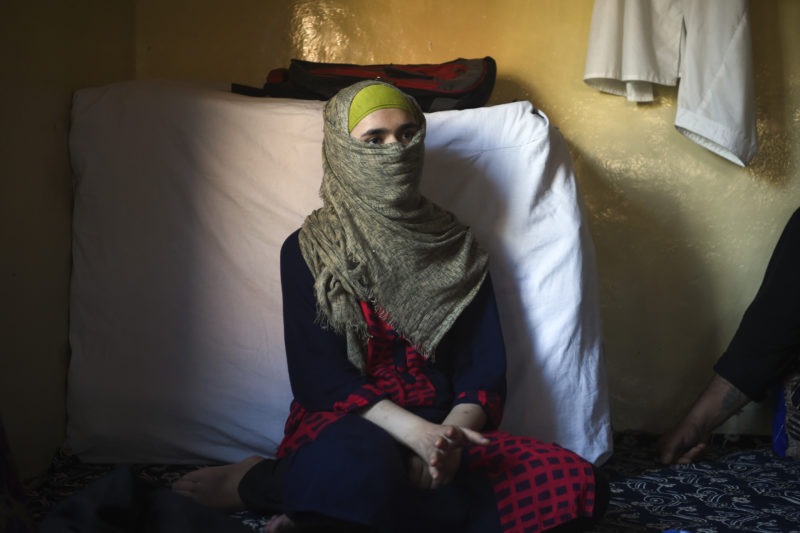No phones, no friends: Cut-off Kashmir children despair in lockdown
Iram is in her first year of college and has dreams of becoming a teacher (Punit PARANJPE)
Srinagar (India) (AFP) – In a tiny building in a cramped narrow lane in Kashmir’s main city of Srinagar, Mohammad Saleem and his family feel cut off from the world and trapped in their home as an Indian military lockdown enters its third week.
New Delhi imposed the strict movement and communications clampdown hours before stripping the restive Himalayan region of its autonomy on August 5, in a bid to quell any unrest triggered by the controversial move.
The security measures have exacted a toll on the valley’s children, who are going stir-crazy from the isolation and lack of communication with friends.
“I can’t study, connect with any of my friends and can’t even go out because of all these restrictions,” Saleem’s 13-year-old son Shayan told AFP.
“I really miss going to school. We used to play a lot there. We have been sitting at one place now, what do we do here?”
Father-of-three Saleem said his younger daughter moved to live with her grandmother as she was “feeling caged”, pointing to a small hall in the first floor of his home where the family have spent most of their time.
Indian authorities re-opened schools in some parts of Kashmir on Monday, but classrooms were largely empty with parents keeping their children at home.
With mobile phone networks still down and only some landlines in operation, families don’t want to be separated from their offspring without being able to check on them.
One parent fretting about his children’s studies is local businessman Showkat Shafi, who has decided not to send his two daughters, aged eight and 13, back to school until tensions ease.
There have been regular bouts of demonstrations in some parts of Kashmir despite the lockdown, with security personnel firing tear gas and pellet guns.
“It has become really difficult to live like this,” Showkat, whose dyeing factory has been shut amid the lockdown, told AFP in the residential district of Nowshera.
“I don’t know how much longer this will continue. What else can we do now but ask them (children) to not leave their home and just study or keep themselves busy.”
– ‘Young live in fear’ –
For Saleem, the outbreaks of violence also trigger another fear — that he’ll be mistaken as a protester and locked up by the authorities amid a sweeping crackdown.
His home is next to Srinagar’s main mosque Jama Masjid, where protests regularly break out. While authorities have kept the mosque shut since the start of August, they also view this old part of the city as a hotbed of dissent.
At least 4,000 people have been detained over the past two weeks under the Public Safety Act (PSA), which allows imprisonment for up to two years without charge or trial, government sources said.
Meanwhile the family’s food rations are almost depleted and Saleem, a door-to-door women’s clothing salesman who lives almost hand-to-mouth, hopes to feed his family by borrowing money.
His daughter Iram is in her first year of college and has dreams of becoming a teacher.
With no sign from Indian authorities on when they will lift the curfew and restore communications services, despair rather than hope now fills her thoughts.
“I can’t study because the internet is down… I can’t go anywhere. Where do I go? What do I do now?,” Iram told AFP: “Everyone’s future is getting destroyed. The young here live in fear.
“The moment you go out — you have stone pelting, tear gas, curfew… there is everything. I feel that there isn’t as much injustice anywhere in the world than there is for the children in Kashmir.”
Disclaimer: Validity of the above story is for 7 Days from original date of publishing. Source: AFP.


